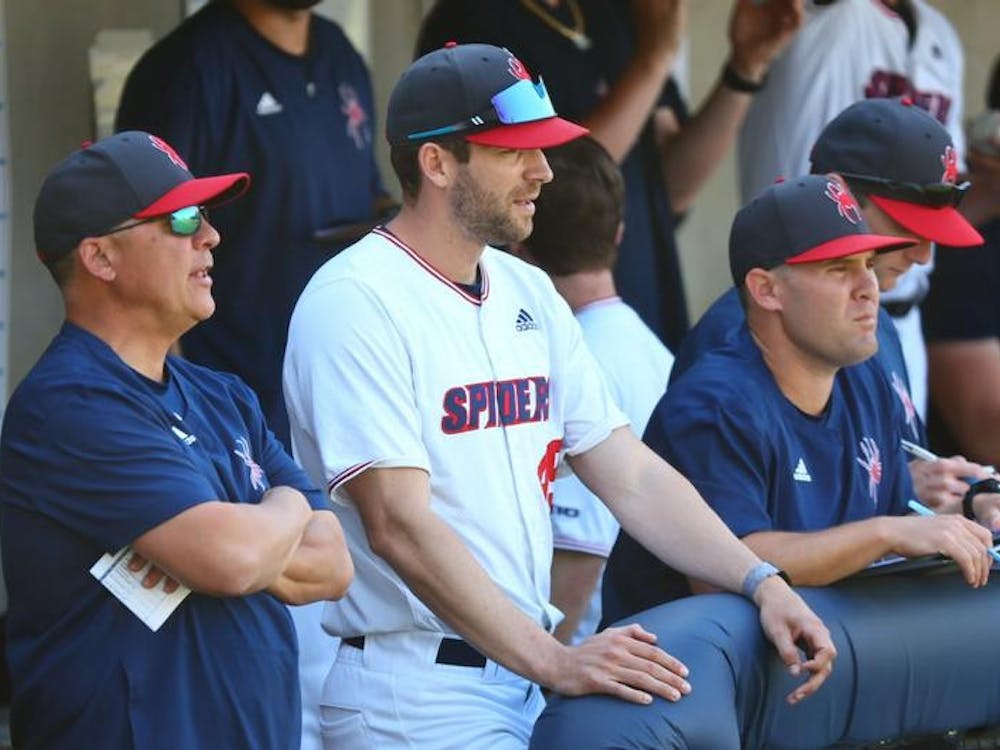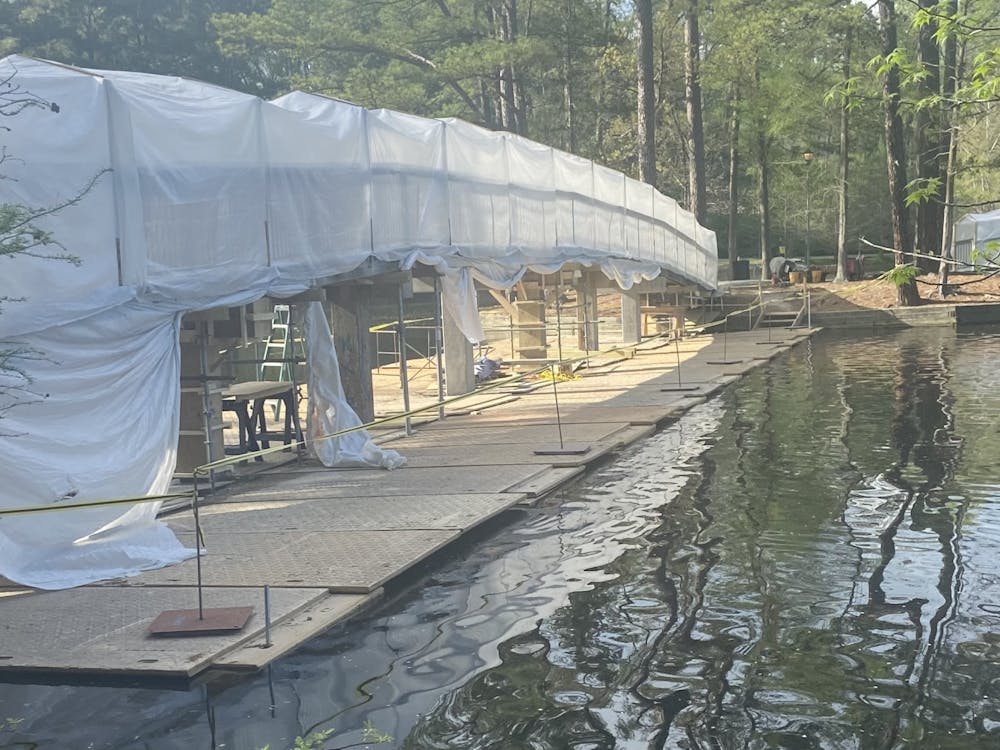The COVID-19 pandemic has uprooted the traditional workplace in the United States and has introduced a novel remote workspace. About one third of workers switched to working remotely between the months of February and March 2020 in response to the rise of coronavirus infections, according to a study conducted by the National Bureau of Economic Research.
Alumni Nathan Dinh and Ally Ludwig, both '20 graduates, began working for their companies remotely after graduating from the University of Richmond in the spring, Dinh and Ludwig said.
Dinh, who majored in biochemistry, is currently a research assistant at Gryphon Scientific, a science policy group based in Washington, D.C., he said. The group holds contracts with the United States government and various agencies, according to the Gryphon Scientific webpage. The policy group conducts scientific literature research for these contract projects, Dinh said.
Dinh is working remotely from his apartment in D.C. Although he loses the face-to-face interaction he would have in an office, he found it easy to adapt to remote work because he is well equipped with using technology, he said.
But Dinh did find it challenging to learn about what his position entails and what is expected of him because of the lack of in-person interaction, he said. Constant communication with his supervisor has helped Dinh with this, he said.
Ludwig is employed by a software company called Atlas Technologies, which handles tracking deal data in real estate transactions for commercial real estate companies, she said. Ludwig is on the company's business development team, where she is working with both Atlas Technologies clients and dealing with product development, she said.
At UR, Ludwig majored in economics in the E. Claiborne Robins School of Business and minored in leadership in the Jepson School of Leadership, she said.
Ludwig has been working remotely from home, she said. Her typical workday begins around 8:30 or 9 a.m., depending on when her meetings are, she said. Ludwig spends most of her day on calls with her coworkers, using screen share on Microsoft Team, she said. Microsoft Team is a video sharing platform used to communicate and collaborate with others, according to the Microsoft Team webpage. However, when working with clients, Ludwig uses Zoom, she said.
Besides adjusting to her new job, Ludwig also had to adjust to the technological challenges of working remotely, she said. When she first started working, she had some technological troubles with setting her company computer up and getting different company passwords, Ludwig said. She said that issue would have been much easier to fix in person, where she could have walked to someone’s office to ask for help.
Despite technological challenges, Ludwig said she has adapted to her new position, but that it is different than an in-person experience.
“I don’t think it is inhibiting my growth in any way, but I do think you lose some efficiencies without working face to face," Ludwig said.
Despite the inability to work in person at their companies’ offices, both Ludwig and Dinh said they felt fairly assimilated into their companies.
Enjoy what you're reading?
Signup for our newsletter
A company supervisor oversees Dinh’s work and is making sure he is adjusting to the remote working experience, he said.
“My company has been particularly helpful in making sure that we are having both a good work-life balance and having self-care because we are in a pandemic that is unprecedented,” Dinh said.
In addition, Dinh and Ludwig’s companies have both hosted multiple virtual happy hours, they said.
“My company has been doing a couple company happy hours and things like that just to make sure everybody knows each other and people are still interacting,” Ludwig said.

Ludwig's home office set-up until she begins going into her company's office. Courtesy of Ally Ludwig
A positive to working remotely, Ludwig said, is seeing her family a lot more than she would have if she were going into an office. However, one negative to working at home is that there are often distractions, she said.
“It is a lot easier to reach for your phone and scroll through social media at home and get distracted by your dog or other things that wouldn’t be there if you were in an office,” Ludwig said.
Dinh said that a positive to working remotely was not being surrounded by others. A person can take a short break when needed without the pressure to appear efficient at his or her desk when around coworkers, he said.
Another benefit to working remotely is being able to adjust your schedule, Dinh said.
“I like to stick to a routine where I start at one time and end at another and take my break at the same time every day,” Dinh said.
But if there needs to be adjustment to Dinh's schedule, there is definitely greater flexibility now that he works remotely than there would be if he needed to show up at the office right on time, Dinh said.
COVID-19 restrictions have also altered the way companies handle recruiting and internship opportunities for undergraduate students.
Senior Michael Baker was recently offered a position at Lazard, a financial advisory and asset management firm, in its middle-market advisory group for when he graduates in the upcoming spring, he said.
Baker completed Lazard’s five-week summer internship virtually, he said.
“Lazard set [the internship] up really well because they gave each intern a ‘buddy’ and ‘mentor,’" Baker said. "My buddy was an analyst in Charlotte[, North Carolina,] and he was my touchpoint every day or every week."
After completing the five-week virtual program, Baker was told that he would hear from Lazard about a potential job offering, he said.
Typically, Lazard offers interns a job position about a week after the internship ends, but because of COVID-19 the company extended the turnaround period to about four and a half weeks, Baker said.
The COVID-19 pandemic did not necessarily alter Baker’s post-graduate plans, as he was always planning to work in finance after graduation, he said. However, it did alter his job search process, he said.
“It altered the plans in the sense that typically you get a return offer right away and the odds I got a return offer were significantly decreased,” he said.
As COVID-19 restrictions continue to reinvent workspace norms, Baker said he believes that now more than ever it is crucial to have a strong network of connections, as firms that have to tighten their employee numbers are going to look to hire people they have rapport with.
Contact lifestyle writer Caitlin O'Hare at caitlin.ohare@richmond.edu.
Support independent student media
You can make a tax-deductible donation by clicking the button below, which takes you to our secure PayPal account. The page is set up to receive contributions in whatever amount you designate. We look forward to using the money we raise to further our mission of providing honest and accurate information to students, faculty, staff, alumni and others in the general public.
Donate Now



